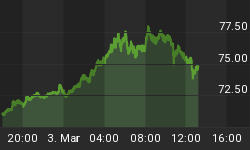"...The City of London leads Europe - and only just tails the US - in packaging debt as an investment product. Most especially, the City loves mortgage-backed securities..."
WILL THE BANK OF ENGLAND raise Sterling interest rates on Thursday? One million British homeowners are hoping they don't.
According to research by Credit Suisse, some £200bn in mortgages - one fifth of the total British market - moved onto two-year fixed packages in 2005. Reaching the end of their deals during the next 12 months, says the Financial Times, these home-owners could see their mortgage repayments jump by nearly one third.
That shock to consumer spending will come even without base rates rising to 6.0% by September, as the London futures market now forecasts.
Professional fund managers might also be hoping for an extended pause in Mervyn King's fight against inflation, too. But you wouldn't know it from their love of fixed-income bonds - most especially securitized debt, backed by loans made on residential property.
The City of London now leads Europe in selling debt as an investment product - most especially these mortgage-backed bonds, known as MBS for short.
Sold to pension companies, hedge funds and investment managers, MBS give investors a chunk of the interest repayments made by home-owners each month. They barely existed a decade ago.
During the first three months of this year, however, sales of residential and commercial MBS by British mortgage lenders totalled £36 billion - well over half of all debt sold onto the investment markets in Europe. The value of new MBS issued in the UK rose 81% from the first quarter of 2006.
With British bankruptcy rates already at record highs - and the damage now leaching into mortgage defaults - you might expect demand for MBS bonds to be waning. But Abbey National, Britain's second-largest mortgage lender, plans to raise £5.6 billion this week by selling bonds backed by outstanding mortgage loans.
Abbey's had no problems so far finding MBS buyers in 2007. But any hedge funds or pension managers looking to take up its new offer might do well to note the currency market's opinion of where base rates are headed.
Repeating a pattern seen in each of the last four months, Sterling has been bid higher yesterday in anticipation of a hike on Threadneedle Street this week. The Pound reached a one-week high versus the Euro and broke a one-month high versus the Dollar above $1.9960.
Last month's 0.25% baby-step from the Bank of England disappointed the Sterling bulls, of course - and this week's decision could cost short-term speculators dear if Mervyn King and his team delay taking base rates to a fresh six-year high of 5.75%.
But it's not only on Threadneedle Street that professional investors now expect interest rates to increase. All 52 professional number-crunchers surveyed by Bloomberg News see the European Central Bank raising Eurozone lending rates to 4.0% on Wednesday. And in Chicago, the options market now puts the chance of a hike in US interest rates at the end of this month at 41%.
Only a month ago, those same options traders priced the chance that US rates would actually fall as a 4/5 shot.
Whatever is driving this quick turnaround in interest-rate forecasts - be it oil prices above $70 per barrel, or the creeping rise of official inflation data - government bond prices have begun to tick lower. Last Friday saw British gilts complete their third losing week on the run. Prices fell, pushing yields upwards and reflecting the City's consensus that interest rates are about to go higher.
Yet no one seems to have told the institutional or hedge-fund investors buying MBS debt.
New sales of MBS bonds in the US totaled $552 billion between January and March, reports Sifma, the securities association. And despite the collapse of the subprime US mortgage market - where 78 major lenders have gone kaput since the end of last year -private equity firms, hedge fund managers and investment banks can't get enough subprime MBS bonds right now, reports the New York Times.
High-risk MBS and other complex debt instruments are starting to attract "dumb money" along with the "hot money", however. According to Bloomberg, Bear Stearns - a leading Wall Street investment bank - recently sold high-risk MBS to some fifty public-sector US pension funds at a meeting in a Las Vegas ballroom.
"There is a lot of money pent up," says one mortgage-bond salesman. "A lot of people are betting that the US housing market will snap back quickly."
Bear Stearns is also seeking permission to sell high-risk debt to retail investors via the stock market, reports Bloomberg. It wants to list CDOs - the collateralised debt obligations that made up $503 billion of the alphabet soup of global debt issuance last year, a fivefold increase since 2003 - in the same way as the London stock market listed Queen’s Walk Investment earlier this year.
Run by hedge fund Cheyne Capital, shares in Queen's Walk lost 25% on one day in March after it said that poor-quality US mortgage loans would hurt dividend payments.
Yet many professional investors, however, keep betting that interest rates will soon fall - and that mortgage-backed bonds will continue to pay.
Today's decision in Frankfurt - and Thursday's vote at the Bank of England - could well be the start of much more than just belt-tightening by one million UK homeowners.
















